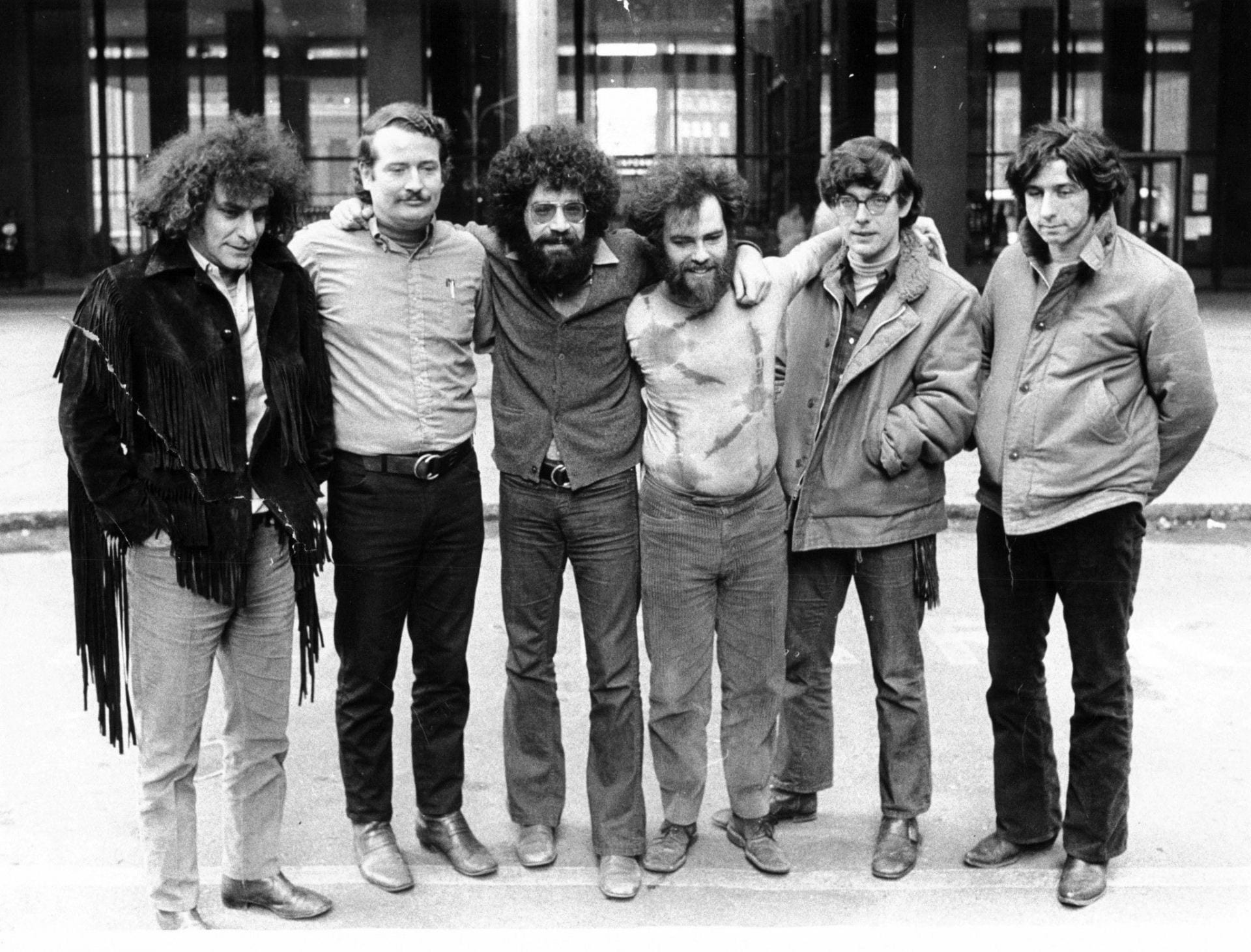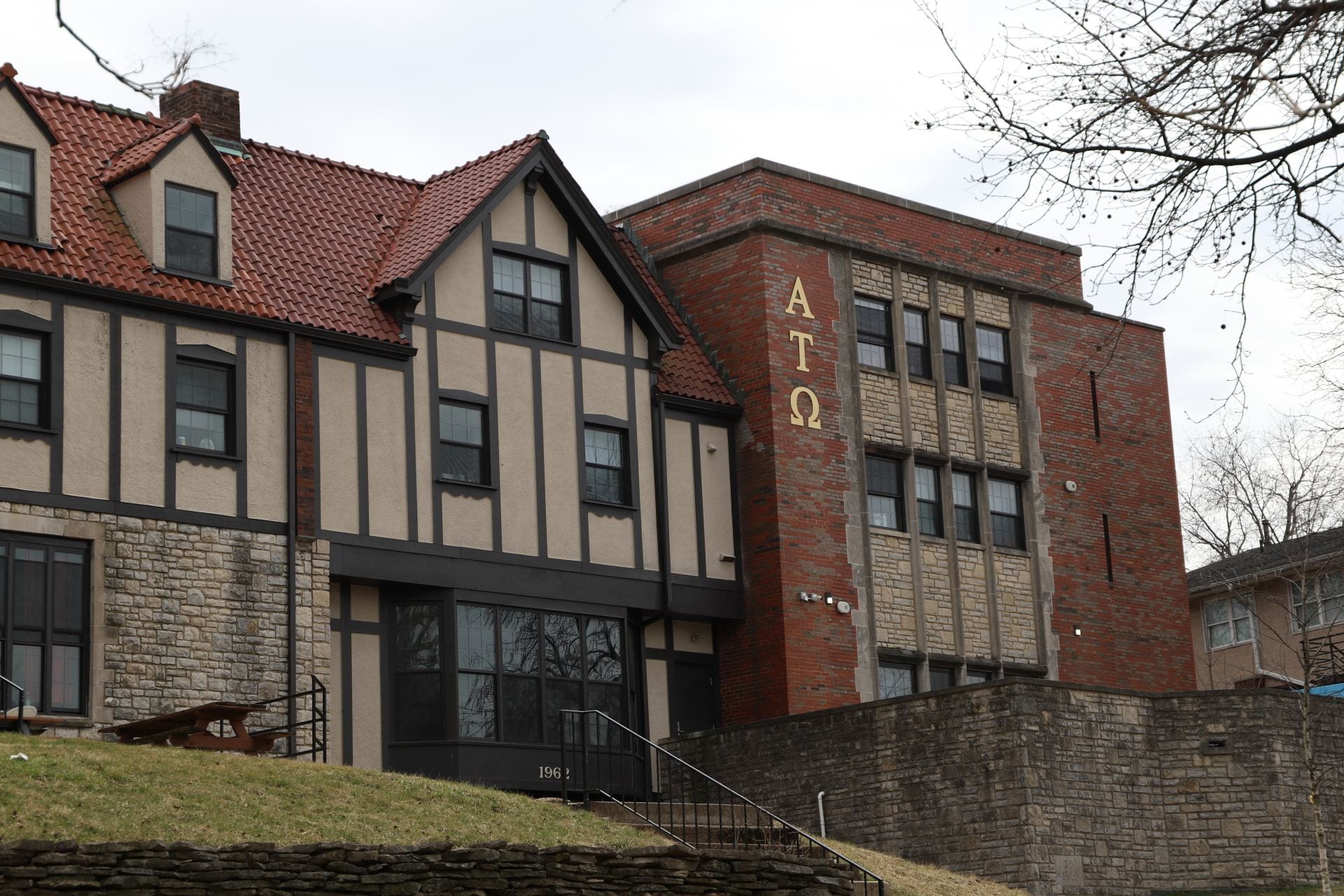
Six of the Chicago Seven defendants appear in 1970. Abbie Hoffman, from left, John Froines, Lee Weiner, Jerry Rubin, Rennie Davis and Tom Hayden were acquitted of conspiracy, but five were convicted of other charges. The guilty verdicts were later overturned. Credit: William Yates/Chicago Tribune via TNS
Written and directed by Aaron Sorkin, the Oscar-winning writer of “Moneyball” and “The Social Network,” “The Trial of the Chicago 7” is the true tale of the infamous 1969 trial of seven members of a peaceful protest that escalated out of control during the 1968 Democratic National Convention in Chicago. Produced for Netflix and released on Sept. 25, the film features a star-studded cast, including Oscar winners Mark Rylance and Eddie Redmayne, as well as exciting newcomer Yahya Abdul-Mateen II.
By the end of the film’s two-hour runtime, I started to feel a connection to some of the characters, becoming invested in what comes next. However, I felt that three of the Chicago seven — David Dellinger (John Carroll Lynch), Lee Weiner (Noah Robbins) and John Froines (Danny Flaherty) — had very minor roles that fade into the background and are not fully fleshed out.
The film opens with a montage of real-life footage of some of the biggest moments surrounding the events just prior to the start of the film: the assassination of Martin Luther King Jr. and Robert F. Kennedy, the call for a draft, the Vietnam war, etc. There’s a powerful juxtaposition right at the start — we see part of a King speech where he speaks negatively of the Vietnam War, followed with an immediate cut to his death. The subsequent scene shows Kennedy voicing his support for King and then being assassinated as well.
The only recurring shots in the opening sequence are the call for a draft and escalation of the Vietnam War. Sorkin immediately put me in the mindset of someone living in a time period where freethinkers are killed and young men are sent to the slaughter. He made me yearn for change in a world that needs it most, just as the characters we follow do.
Given that Sorkin only had so much runtime, I found myself wanting more at times. This follows the typical format of the courtroom drama and, as such, most of the time is spent within court walls. Many of these scenes are the most compelling, allowing the cast to fully flex their acting muscles, and for those who have seen a Sorkin film before, his trademark witty, quick dialogue full of snappy replies and “gotcha” moments will be familiar.
With the courtroom scenes, although based on telling a true story, the film feels rather fictitious in its sensationalism, only adding to the enjoyment. I began to feel the anger and frustration of the defendants, one of which is there solely due to the color of his skin and was not present at the protest. Scenes where the tension escalates to a great crescendo of cathartic release are the most memorable within the film.
I would’ve liked some more time spent building the greater context of these events and characters outside of the court, as some tended to fade into the background. There’s clearly enough content here to make a veritable epic. Some of the civil rights storylines involving the Black Panthers and the character of Bobby Seale (Yahya Abdul-Mateen II) could’ve also been fleshed out.
The parallels between the themes of this movie and the world we live in today are impossible to ignore. There are overarching themes of institutional incompetence and powerful white men abusing their power — both of which are exemplified by the judge. In the end, these are people who are sick of being discriminated against, not being listened to and having to deal with a non-progressive government. Take a look back on this year alone, and we can see the waves of these same sentiments today.
“The Trial of the Chicago 7” came out at just the right time to tap into the zeitgeist of the American populace. Featuring undeniable parallels to the world we live in and stellar performances all around, the movie is a wonderful encapsulation of two mirrored time periods.
Rating: 3.5/5


